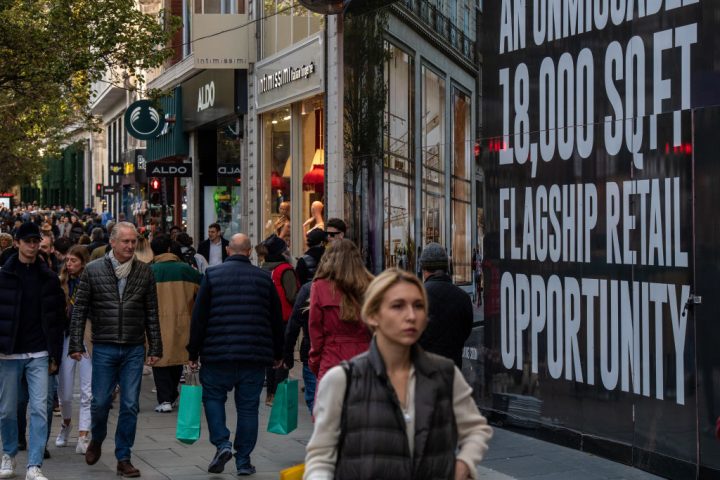Until the turn of the year it was taken for granted that Britain would descend into recession in the coming months. The Bank of England saw a long downturn lasting into 2024; the IMF thought we would do worse than even Russia. Now, the Office for Budget Responsibility (OBR) thinks we might avoid recession altogether, and today comes more evidence to back that up: retail sales volumes rose by 1.2 per cent in February, month on month. The Office of National Statistics also revised its estimate for retail sales volumes in January, from 0.5 per cent (which itself was received as a pleasant surprise) to 0.9 per cent.
No-one should get too excited. The same figures show a year on year fall in sales volumes of 3.5 per cent in February. We are just about back to where we were pre-pandemic, and some way behind the relief rally in the summer of 2020, when we were suddenly allowed to go shopping again. These are figures for sales volumes; the actual money we are spending in the shops is up substantially as we are forced to pay higher prices. Moreover, today’s figures may partly tell a story which is less good news. Sales volumes in food stores are up 0.9 per cent – but is that because we are feeling more bullish, or because we are eating out less in pubs and restaurants and turning to supermarkets for our meals instead? Today’s figures do not include the hospitality sector, which anecdote suggest is deep in the doldrums.
The figures dispel the idea that the pandemic has led to a permanent, irreversible shift towards internet shopping
Interestingly, the figures dispel the idea that the pandemic has led to a permanent, irreversible shift towards internet shopping. Non-store retailing fell 2.9 per cent in the year to February, while there was a surprising recovery in the fortunes of department stores – sales were up by 0.9 per cent over the year. John Lewis may be squealing, the days of white pianos, palm trees and roof gardens may have passed – but clearly some department stores are managing to get people through the doors. The big winners, though, were clothing and footwear shops, which saw sales volumes rise 4.3 per cent over the year. The big losers were household goods stores, where a fall of 6.6 per cent may be related to the decline in property sales.
These figures show just how difficult it is to identify trends in the economy. It may have seemed obvious a couple of years ago that internet shopping was all but going to finish off traditional stores. Yet months of being forced to shop online do not seem to have endeared ourselves to buying stuff in this way. Indeed, it may well have made us appreciate the hazards of ordering things, especially clothes, which we cannot see, feel and try on first. Amazon this week announced that it is to lay off a further 9,000 workers globally. This might be the start of a mini-trend – until something else happens.







Comments